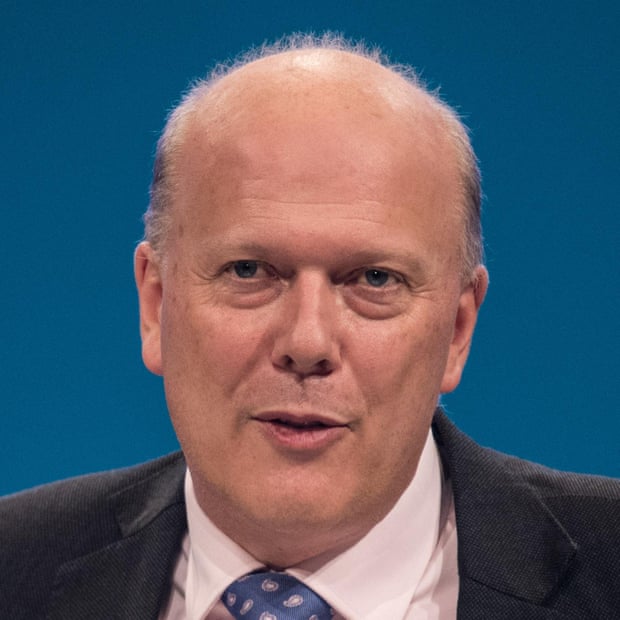The supervision of all offenders in the community is to be undertaken by the state in a major renationalisation of the probation sector in England and Wales, just five years after Chris Grayling introduced a widely derided programme of privatisation while justice secretary.
Under his disastrous shake-up in 2014, the probation sector was separated into a public sector organisation managing high-risk criminals and 21 private companies responsible for the supervision of 150,000 low- to medium-risk offenders.
Following years of damning criticism from MPs, inspectorates and former probation officers, the justice secretary, David Gauke, has decided to bring all offender management under the National Probation Service (NPS) by spring 2021.
He said the private sector would still play a part in the provision of services, with £280m worth of contracts for rehabilitation services such as the provision of unpaid work and accredited programmes. But the core function of the service – supervising and managing about 250,000 offenders in the community – will once again be publicly provided.
Gauke said: “Delivering a stronger probation system, which commands the confidence of the courts and better protects the public, is a pillar of our reforms to focus on rehabilitation and cut reoffending.
“I want a smarter justice system that reduces repeat crime by providing robust community alternatives to ineffective short prison sentences – supporting offenders to turn away from crime for good.
“The model we are announcing today will harness the skills of private and voluntary providers and draw on the expertise of the NPS to boost rehabilitation, improve standards and ultimately increase public safety.”
Gauke announced last summer the contracts of eight private firms which run the 21 “community rehabilitation companies” (CRCs) in England and Wales would be terminated in 2020, two years early. This followed a £500m-plus bailout by the Ministry of Justice.
But it had been the government’s intention to offer fresh contracts to private providers, under proposals put out to consultation last year.
The new model will introduce 11 new probation regions in England and Wales run by the NPS. Each will have an “innovation partner”, either a private firm, charity or NGO, which will provide some rehabilitation services.
As justice secretary, Grayling ignored significant warnings from within his department to push through his so-called transforming rehabilitation reforms in 2014.
In February, MPs on the public accounts committee said the changes were rushed through at breakneck speed, taking “unacceptable risks” with taxpayers’ money. The justice committee described the overhaul a “mess” and warned it might never work.
Quick GuideGrayling's Failings
Show

Labour have claimed that while he was in government Chris Grayling's mistakes cost the economy and taxpayers over £2.7bn. Here are five of Grayling's biggest failings:
B&B gay comments
In 2010 Grayling was forced to apologise after a recording captured him saying that people who ran bed and breakfasts in their homes should have the right to turn away gay couples.
Banning books for prisoners
Grayling introduced a ban on prisoners receiving books from friends or relatives, and limited the number of books each prisoner was able to have in a cell. A high court ruling in December 2015 found that the measure was unlawful and it was subsequently scrapped.
Rail timetable chaos
Grayling was transport secretary when a change to rail timetables caused chaos, leading to the cancellation of thousands of services. More than one in 10 Northern and Thameslink trains were cancelled after the introduction of the new timetables on 20 May 2018. The rail regulator criticised Grayling's DfT for failing to question the industry’s assurances about the risk of disruption.
Seaborne Freight
Grayling was widely mocked after awarding Seaborne Freight a no-deal Brexit ferry contract despite the company not owning any ships and having never previously operated a ferry service. It emerged that Seaborne's website had copied their legal terms and conditions from a pizza delivery service. The contract was cancelled in February 2019. The government subsequently had to agree a new £33m contract with Eurotunnel to settle legal action.
Part-privatisation of probation contracts
Failings by the Ministry of Justice in the part-privatisation of probation services will cost taxpayers at least £171m, according to a National Audit Office (NAO). Under Grayling, in 2013, the ministry created 21 community rehabilitation companies (CRCs) to manage low- and medium-risk offenders with the aim of cutting reoffending rates and costs. The NAO found that while there has been a 2.5% reduction in the proportion of offenders proven to have committed another crime between 2011 and March 2017, the number of offences per reoffender has increased by 22%.
Last October the Guardian revealed the number of offenders in England and Wales charged with serious offences, including murder, manslaughter and rape, while they were being monitored in the community increased by more than a fifth in 12 months.
There were 627 serious further offence (SFO) reviews conducted in 2017-18, a freedom of information request response disclosed, a 21% rise on the 517 in the previous 12-month period.
SFO reviews are triggered when an offender under statutory probation supervision is charged with murder, manslaughter, rape or other serious violent or sexual offences.
Dame Glenys Stacey, the chief inspector of probation, who revealed the Grayling shake-up had led to tens of thousands of offenders – up to 40% of the total – being supervised by tphone calls every six weeks instead of face-to-face meetings, said the changes were “irredeemably flawed”.
Commenting on Gauke’s announcement, Stacey said: “I am delighted at the secretary of state’s decision. Probation is a complex social service, and it has proved well-nigh impossible to reduce it to a set of contractual requirements.
“Today’s announcement puts the focus firmly on improving the quality of probation services. More than a quarter of a million people are under probation supervision each year, and high-quality probation services can make such a difference to them and to wider society as well.
“Hard-pressed probation professionals now face yet more change, but I anticipate they will be in good heart. It is a chance to restore their professionalism, enabling them to make the biggest possible difference to the lives of some of the most troubled and troublesome people in society, and that is what gets probation staff up in the morning, above all.”
Richard Burgon, the shadow justice secretary, said: “After putting public safety at risk and squandering hundreds of millions of pounds on trying to shore up failing private probation companies, the Tories have been forced to face reality and accept their probation model is irredeemably broken.
“The Tories didn’t want to make this U-turn and had been desperately trying to re-tender probation contracts to the private sector. It is right those plans have been dropped and that offender management is to be brought back in-house.”
He added: “We will press the government to ensure that probation is fully returned to being the award-winning public service it was before this disastrous Tory privatisation.”










